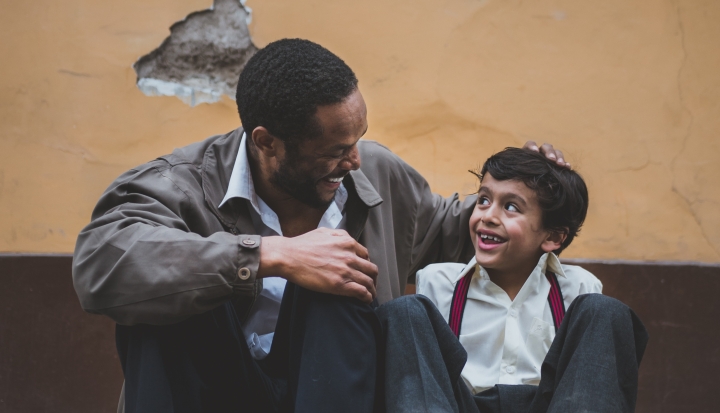“I don’t know,” my father said, looking down from where he would sit nightly at the edge of the bed as I prepared for sleep, a ritual throughout my childhood. It was one of the most significant conversations I ever had, but I cannot remember the question I asked him. I only remember that I was asking a question about church, which I did often, and those three words: “I don’t know.”
The end of the day was when I asked questions, especially about faith. Why isn’t everyone a Christian? Where do we go when we die? Why do we do a confession every week? I wish I could remember more, my childhood questions and his answers. I wish I could download them, ready for me to transmit to my own children someday. But I remember only snippets; I remember few of the answers, but especially that one.
“I don’t know.” Those words could be said in so many different tones, could carry so many meanings: I don’t know, leave me alone. I don’t know! Stop asking me. But I remember my father’s words being weightier and gentler: I don’t know. I don’t have all the answers. I don’t know. I am only human.
It is a strange phrase to remember, given the solidity of my church upbringing. I went to church and Sunday school every week. And every night my parents would pray with me. That night when my father told me he didn’t know, we prayed. We read a book. And I knew we would go to church on Sunday, as we did every week.
I still chew on that moment now, as a young adult, wondering why those words have accompanied me through years of showing up at church, of walks on Sunday mornings instead of worship, of coming back through church doors. What would it have meant to have gone without them? What if my parents had never admitted “I don’t know?” in those few moments before prayer? I would have learned that faith meant certainty, that faith didn’t leave room for what we don’t know.
But I have also come to realize that the answer my father gave me was important only as part of something larger. That conversation happened before a nightly ritual of prayer, continuing to talk to God, day after day. Perhaps it is because of that foundation that I remember those words so clearly. The “I don’t know” didn’t mean we stopped praying. Nothing fell away with it; it simply existed alongside our daily practice. The practice, and not only the conversation, is why I remember that conversation as one of the most significant in my life. With it, I learned that faith could have room for doubt. That sometimes we admit what we do not know, and then it is time for prayer.
This essay is part of a series of reflections on conversations that left an impact on the authors’ lives. You can read the rest of the essays here. The collection also appears in the January 2019 issue of U.S. Catholic (Vol. 84, No. 1, pp. 28–33).
Image: Sebastián León Prado on Unsplash















Add comment